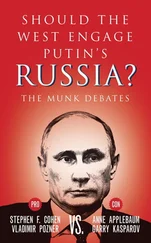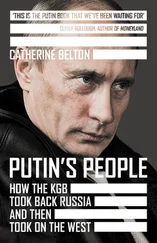If he was even aware of such things at the time, they would have been easy for Putin to justify. In any case, he was too happy and excited to be a part of the secret elite that really ran the world. A friend of Putin’s, Sergei Roldugin, who went on to become the lead cellist in the Mariinsky Theater Symphony Orchestra, recalls Putin as a young KGB operative: “Once, at Eastertime, Volodya called me to go see a religious procession. He was standing at the rope, maintaining order, and he asked me whether I wanted to go up to the altar and take a look. Of course I agreed. There was such boyishness in this gesture—‘nobody can go there, but we can.’”
On the way home drunken students tried to bum a cigarette from Putin, who refused. One of them then shoved or punched Putin. As his friend remembers: “Suddenly somebody’s socks flashed before my eyes and the kid flew off somewhere. Volodya turned to me calmly and said, ‘Let’s get out of here.’ And we left. I loved how he tossed that guy! One move, and the guy’s legs were up in the air.” [63] Putin, First Person, p. 52.
Though their paths diverged—the KGB for Putin, classical music for Roldugin—they kept in touch, bound by youth, the streets, a shared sense of loyalty. In early 2016 the Panama Papers would reveal that Roldugin was at least nominally in charge of some $2 billion in offshore capital, pretty good for a cellist.
* * *
Putin is only intermittently visible in the ten years between entering the KGB and surfacing in Dresden, East Germany, in 1985. Odd had it been otherwise. He was now a soldier on the “invisible front.” As his friend noticed, this offered the secret satisfactions of knowing what others did not know and being able to do what others could not. He was being initiated into a secret elite. Part of that initiation was a new relationship to oneself that relieved him of the need to be sincere. The difference between the inner and the outer man, which might be called hypocrisy in a common Soviet citizen, was, in the case of a KGB officer, an operational necessity. In KGB training there is also an element of self-mastery that would have been familiar to Putin from martial arts, except that now it was used to manipulate others. Upon entering any training facility an agent would be given a new last name, to break his conditioned response to his own name, to free up his relationship to his own identity, the easier to slip into aliases and disguises.
Another force would begin shaping any new recruit, imperceptibly but implacably. Paranoia was both the strong suit and an occupational hazard of the KGB. Their task was to be suspicious. History had clearly demonstrated that it was always better to err on the side of excess suspicion. The KGB would agree with the Sicilian proverb that says To trust is good, not to trust is better.
But the trouble with paranoia is that it cannot set limits on itself, and so grotesqueries are committed. For example, when the Soviets wanted to transfer submarines from their southern bases to those in the north, they would not send them out by the short and easy route through the Black Sea, then to the Mediterranean and out to the Atlantic, from where they would pass over Scandinavia to Murmansk in the Arctic Circle. That route would expose the submarines to the spying eyes of NATO. To avoid that unacceptable risk, the subs were placed on floating dry docks, covered with tarps, and hauled on a fifty-one-day journey through the country’s internal river system as detailed in the book Rising Tide: The Untold Story of the Russian Submarines That Fought the Cold War : “Only the nineteenth century Mariinsky Canals presented a true problem. Too shallow and too old, they often required the crew to pull the dock along and at the locks old women and pack animals pitched in to force the old controls to do their job.” [64] Gary Weir and Walter Boybe, Rising Tide (New York: New American Library, 2003), p. 41.
Old women! Pack animals!
But there was nothing new in any of that—a Frenchman who served in the tsar’s armies in the late 1500s said of Russia: “This is the most distrustful and suspicious nation in the world.” [65] Jacques Margeret, The Russian Empire and Grand Duchy of Moscow (Pittsburgh: University of Pittsburgh Press, 1983), p. 26.
After some on-the-job training in counterintelligence, Putin received his first schooling between February and July 1976 in KGB School 401 in the Okhta region of Leningrad, a school he calls in “no way distinguished,” [66] my translation. Appears as “wasn’t too exceptional” in Putin, First Person, p. 48.
which is either an accurate characterization or a way of deflecting attention from the subject.
His training there was no doubt largely operational—tradecraft, surveillance and avoiding surveillance, the art of recruitment. One danger KGB agents faced was that the sources they were developing were in fact working for the other side, “dangles” as they were called. For that reason it was recommended that a KGB officer meet with a potential source at least seven times before beginning to work with him, the “first stage of operational development.” [67] Earley, Comrade J, pp. 49 and 50 respectively.
KGB School 401 may also have had something of the boot camp about it. In a description of another such school Major Yuri Shvets, author of Washington Station: My Life as a KGB Spy in America , observes: “We parachuted from planes, mastered a variety of weapons, learned to plant mines, negotiated a napalm-drenched obstacle course, captured ‘prisoners’ for interrogation, ‘blew up’ bridges, and ‘destroyed’ enemy supply lines.” [68] Yuri Shvets, Washington Station (New York: Simon and Schuster, 1994), p. 15.
Putin had entered the KGB just as it was undergoing a fundamental change in course in part influenced by, of all things, an American movie, if one is to believe the post-Soviet station chief for foreign intelligence in New York City, Sergei Tretyakov, who writes that the 1975 Robert Redford film Three Days of the Condor “convinced the KGB generals that the CIA was spending more money and putting more effort into analytic work than the KGB was,” [69] Early, Comrade J, p. 38.
and on that basis a shift of emphasis occurred between the operational and the analytical.
Though the KGB was undergoing certain changes in the mid-seventies, the organization bore the clear impress of its leader, Yuri Andropov, who would not only be Putin’s commander in chief but his hero and role model as well. Andropov was the only person before Putin to pass from being chief of the security services to head of state. When Andropov took the helm of the USSR in 1982, the choice was even welcomed by a portion of the dissident intelligentsia who, along with Andrei Sakharov, believed that the KGB was “the least corrupt institution in the country.” [70] attributed to Sakharov; Peter Baker and Susan Glasser, Kremlin Rising (Washington, D.C.: Potomac Books, 2007), p. 258.
Moreover, it was assumed that the KGB possessed the best information and therefore had to realize that the country was in critical need of reform.
Andropov had been traumatized by the Hungarian Uprising of 1956, which he, as Soviet ambassador, would treacherously and viciously suppress. But first, as historian Christopher Andrew put it, “he had watched in horror from the windows of his embassy as officers of the hated Hungarian security service were strung up from lampposts. Andropov remained haunted for the rest of his life by the speed with which an apparently all-powerful Communist one-party state had begun to topple.” [71] Christopher Andrew and Vasili Mitrokhin, The Sword and the Shield (New York: Basic Books, 1999), p. 5.
Читать дальше
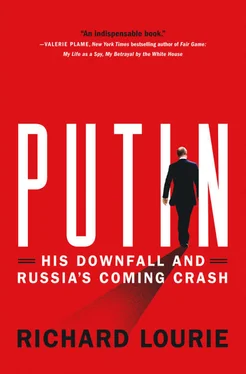

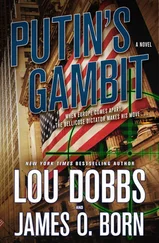
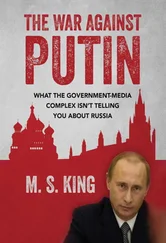
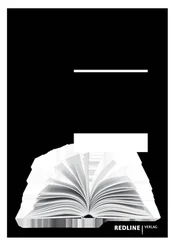
![Stephan Orth - Behind Putin's Curtain - Friendships and Misadventures Inside Russia [aka Couchsurfing in Russia]](/books/415210/stephan-orth-behind-putin-s-curtain-friendships-a-thumb.webp)

